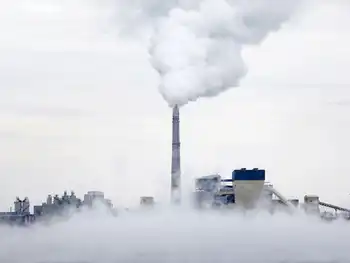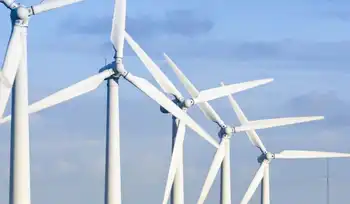Ottawa to force reactor restart
OTTAWA, ONTARIO - MPs have passed emergency federal legislation to allow a Chalk River reactor to resume production of medical isotopes, overriding the safety warnings of the country's nuclear watchdog.
In a rare night session, MPs heard testimony in the Commons – something not done in decades – from cabinet ministers, nuclear experts and the regulator whose safety concerns had prompted the reactor shutdown in November.
After quizzing the experts for four hours, MPs voted late last night to approve the legislation, although many politicians expressed misgivings about overruling the regulator.
The bill was to be considered by the Senate immediately, a government official said.
Even with the okay to restart the reactor, Atomic Energy of Canada Ltd. officials cautioned it could take at least a week to resume production of isotopes, crucial for many potentially lifesaving medical tests.
Politicians were forced to balance the risk of restarting a nuclear reactor flagged with safety concerns against the risk of letting the shortage of isotopes grow worse, "This cannot go on beyond the next seven to 10 days without having serious consequences for Canadians," federal Health Minister Tony Clement said.
The reactor provides more than half of the isotopes used in cancer and cardiovascular testing worldwide – enough for 76,000 tests a day, Clement said. "Reports were coming in from across the country, in certain provinces, supplies had become critical and severe," he said.
While hospitals in Ontario and Quebec are "triaging the shortage... it cannot go on forever," Clement said. "This step is not taken lightly.... This bill must be passed if we are going to protect the health and safety of Canadians," he said of the hurried legislation.
The law allows Atomic Energy of Canada Ltd. to restart the reactor to resume production of isotopes for 120 days "only if it is satisfied that it is safe to do so."
The reactor was shut down on Nov. 18 for routine maintenance. But an inspection by the Canadian Nuclear Safety Commission found that safety upgrades – connecting vital cooling pumps to an emergency power supply – had not been done. That put the reactor in violation of its operating licence.
The shutdown has choked off the supply of isotopes used for diagnosing medical conditions such as cancer. And since the isotopes have a short shelf life, the shortage has forced doctors to postpone diagnostic procedures.
But safety commission president Linda Keen told MPs that the legislation was "without precedent" and would allow Atomic Energy of Canada Ltd. to become the regulator of its own reactor.
"This provides significant risk not only to the reactor but to the employees and the communities that live around this reactor. You would not have the benefit of the oversight," Keen said.
However, AECL senior vice-president Brian McGee gave his pledge that the facility would be safely operated during the 120 days' exemption allowed by the law.
"You have my absolute assurance that reactor will be operated safely," he told the MPs.
In a sharp attack earlier in the day, Prime Minister Stephen Harper charged that the "Liberal appointed" nuclear safety commission put the "safety and lives of tens of thousands of Canadians" at risk for forcing the shutdown.
"The actions of the regulator... are clearly, in the eyes of this government, not in the public interest. It is in the public interest to get this reactor back online and get these medical radioisotopes produced," Harper said in question period.
"There is no threat to nuclear safety at all. There is a threat to human health," he said.
But Harper's blanket assurance of safety prompted opposition MPs to question his expertise on the issue.
"Since when is the Prime Minister of Canada an expert on nuclear safety?" said Deputy Liberal Leader Michael Ignatieff (Etobicoke-Lakeshore).
In a recent letter to Clement and Natural Resources Minister Gary Lunn, Keen said her agency had "serious concerns" regarding the safety of the 50-year-old reactor.
"The commission requires AECL to have all safety upgrades in place in order to operate safely under its licence," she said.
She said the emergency power supply "is essential for the safe operation," calling into question Harper's strong assurance that safety would not be put at risk.
She reminded cabinet ministers her agency is a quasi-judicial body that "has a long record of regulating Canadian nuclear facilities."
The brewing frustration of the government – under fire from opposition politicians for days now – boiled over as Harper took aim at the nuclear regulator, saying he had his own independent advice "indicating there is no safety concern with the reactor.
"We do have the responsibility to demand that Parliament step in and fix this situation before the health of more people is put in jeopardy," he said.
Related News

Alliant aims for carbon-neutral electricity, says plans will save billions for ratepayers
MADISON - Alliant Energy has joined a small but growing group of utilities aiming for carbon-neutral electricity by 2050.
In a report released Wednesday, the Madison-based company announced a goal of “net-zero carbon dioxide emissions” from its electricity generation along with plans to eliminate all coal-powered generation by 2040, a decade earlier than the company’s previous target.
Alliant, which is pursuing plans that would make it the largest solar energy generator in Wisconsin, said it is on track to cut its 2005 carbon emissions in half by 2030.
Both goals are in line with targets an international group of scientists warn is necessary…




